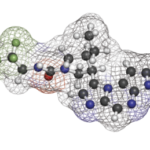Burmester et al. characterized the long-term safety profile of upadacitinib treatment across multiple rheumatic diseases.


Burmester et al. characterized the long-term safety profile of upadacitinib treatment across multiple rheumatic diseases.

Upadacitinib, as a tablet and oral solution, is now FDA approved to treat children age 2 years and older with active polyarticular juvenile idiopathic arthritis or psoriatic arthritis.

Ho et al. found that upadacitinib may impede the progression of bone erosion in patients with RA. Additionally, bone scans of patients with limited exposure to conventional synthetic disease-modifying antirheumatic drugs showed bone erosion regression, which may result from upadacitinib’s inhibition of Janus kinase 1.

The FDA has approved upadacitinib for the treatment of non-radiographic axial spondyloarthritis (nr-axSpA) based on a short-term study that demonstrated improved pain, function and other symptoms of nr-axSpA in patients with active disease.

Ana-Maria Orbai, MD, MHS, addressed the latest research into psoriatic arthritis (PsA), including a comprehensive overview of the latest FDA-approved treatments and their implications for clinical practice.

ACR Convergence 2021—The recent Boxed Warning requirement applied to three Janus kinase (JAK) inhibitors, cautioning doctors and patients about several major risks in patients with rheumatoid arthritis, came only after rigorous data collection and careful consideration of the risks and the benefits, U.S. Food & Drug Administration (FDA) officials said in November at ACR Convergence…

As treatments for psoriatic arthritis (PsA) emerge, a clinical trial comparing the Janus kinase (JAK) inhibitor upadacitinib and the tumor necrosis factor (TNF) inhibitor adalimumab provided some new insights. Published earlier this year in The New England Journal of Medicine, the SELECT-PsA 1, double-blind, phase 3 trial found that a 30 mg dose of upadacitinib…

Sarah D. Bayefsky, MD, Kimberly DeQuattro, MD, & Rebecca E. Sadun, MD, PhD |
Approximately 50% of young adult patients with childhood-onset rheumatic diseases become lost to follow-up within the first year of transferring to adult rheumatology care, mirroring the statistics of other subspecialties.1,2 One of the challenges cited most consistently by young adult patients and their families relates to differences between rheumatology care delivery in the pediatric and…

On Sept. 1, the U.S. Food & Drug Administration (FDA) announced that it is requiring revisions to the Boxed Warning for the Janus kinase (JAK) inhibitors Xeljanz/Xeljanz XR (tofacitinib), Olumiant (baricitinib) and Rinvoq (upadacitinib) to include information about the risks of serious heart-related events, cancer, blood clots and death.1 Recommendations for healthcare professionals will include…

Based on data from two phase 3 clinical trials, Health Canada has approved the use of upadacitinib to treat adults with active psoriatic arthritis.